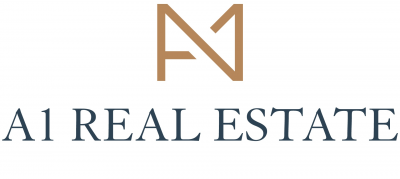
Hôtel vs appart-hôtel vs appartement meublé : quelle option pour un séjour de 3 à 12 mois à Paris ?
Table of contents
The choice between short-term and long-term rental is often a personal one. For example, if the owner wants to live in the property, it is much more attractive to rent it on a short-term basis (in order to recover it more quickly).
Conversely, if the owner has no need for the property, it is more profitable to rent it on a long-term basis. Because there is less staff turnover and fewer tasks to be carried out, this type of tenancy is sometimes more attractive. However, this remains a personal choice.
What are the advantages of short-term rental?
Choosing to rent your property on a short-term basis means asking for a higher rent per week (rather than per month).
With this type of rental, it is possible to recover the property more quickly from time to time during the year. The property can be used as a second home for a few weeks at a time.
What are the disadvantages of short-term rental?
However, short lettings mean longer rental holidays, as the rental is more dependent on the attractiveness of the property to tourists.
Offering short-term accommodation also means higher costs, as you have to rent it furnished for a short period. This means that the property will have to be fully equipped, and worn or damaged equipment will have to be replaced. You'll also need to maintain the property you rent on a seasonal basis, because of the large number of tenants who come and go.
Useful link: What is the list of compulsory equipment for furnished lets?
From a tax point of view, you will have to pay property tax, council tax and household waste tax.
Short-term lets take time and money: handing over the keys, cleaning, changing the linen, etc.
Useful link: What are the costs of owning a property?
What are the disadvantages of long-term leasing?
Unlike short-term seasonal lets, it is not possible to get the property back "quickly" to live in it or to house a relative.
By offering long-term rental, you run the risk of unpaid rent. To protect yourself from this situation, it would be wise to take out an unpaid rent guarantee.
What is the tax treatment of long-term contracts?
If the property is rented on an unfurnished basis, the rental income should be included in the "income from property" category of the return.
There are two types of tax regime, depending on the annual rental income:
Income of less than €15,000 excluding VAT: under the "régime réel" or micro-foncier scheme (which allows you to benefit from an automatic 30% allowance on rental income).
From €15,000 excluding VAT: under the "régime réel" scheme, which allows you to deduct charges based on expenses incurred during the tax year.
If the property is rented out furnished, the method of taxation depends on the amount of annual income:
Annual income of less than €72,600 exclusive of tax: actual tax or micro-BIC tax (automatic 50% allowance on rental income)
Annual income in excess of €72,600 excluding VAT: under the "régime réel" scheme, which allows you to deduct all expenses incurred during the tax year.
Whether the property is let furnished or unfurnished, council tax and household waste tax are payable by the tenant. The landlord is only liable for property tax.
What is the tax treatment of short-term rentals?
Income from seasonal lets is taxed in the same way as income from furnished lets.
Income is subject to income tax, and taxation depends on the amount of annual income:
Annual income of less than €72,600 excluding VAT: actual income tax or micro-BIC scheme (to benefit from an automatic 50% allowance on rental income).
Annual income equal to or in excess of €72,600 excluding VAT: under the actual scheme, with the option of deducting expenses based on the costs incurred.
What are the advantages of long-term leasing?
Long-term rental offers a sustainable source of income. To measure the return on the rental, it is important to take into account all the charges to be shared with the tenant (who is making the property their principal residence).
A long rental period (minimum 3 years) helps to limit costs (agency fees, lease drafting, etc.).
As the owner, if you opt for a long-term lease, you will only have to pay property tax. Council tax and household waste tax are the responsibility of the tenant.
Useful link: What are the costs of owning a property?
- The choice between short-term and long-term rental is often a personal one. For example, if the owner wants to live there, it's much better to opt for a short-term rental (so as to get the property back more quickly).
- As there is less turnover and fewer tasks to be carried out, long-term lets are sometimes more attractive.
- Choosing to rent your property on a short-term basis means asking for a higher rent per week (than per month).
- However, short lettings mean longer rental holidays, as the property is more dependent on tourist demand.
- Long-term rental offers a sustainable source of income. The longevity of the rental period (minimum 3 years) means that costs are kept to a minimum.
- Unlike short-term seasonal lets, it is not possible to take the property back "quickly" to live in it or to house a relative.

You want to
to sell in Paris or its surroundings ?
Posted on 19/06/2023 by
Andy LECUYER




